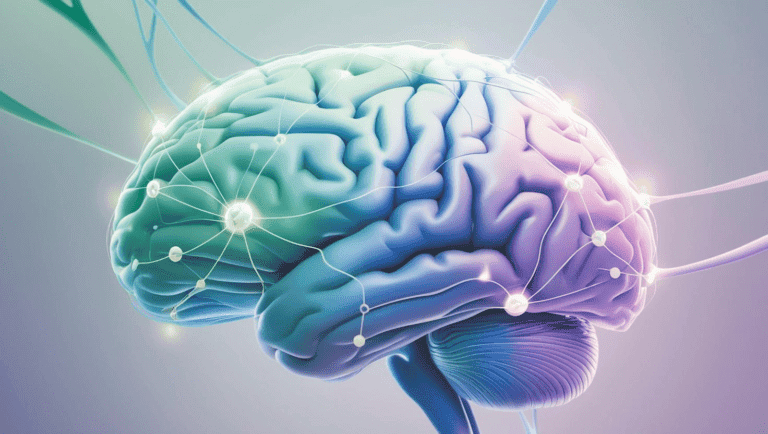Introduction
Attention-Deficit/Hyperactivity Disorder (ADHD) and anxiety disorders are two of the most common mental health conditions, often overlapping in symptoms and sometimes coexisting. This similarity can make it challenging to differentiate between the two, even for experienced clinicians.
However, comprehensive testing can play a crucial role in accurately identifying the root cause of an individual’s difficulties. Let’s explore the similarities and differences between ADHD and anxiety and how testing can provide clarity in diagnosis.
Understanding ADHD and Anxiety
While ADHD and anxiety share certain symptoms, they are fundamentally different conditions:
🔹 ADHD is a neurodevelopmental disorder characterized by:
✔️ Inattention and distractibility
✔️ Hyperactivity and impulsivity
✔️ Difficulty with organization, time management, and task completion
✔️ Symptoms that are lifelong and affect multiple areas of life (work, school, relationships)
🔹 Anxiety Disorders are characterized by:
✔️ Excessive worry, fear, or nervousness that interferes with daily life
✔️ Physical symptoms (increased heart rate, muscle tension, sweating)
✔️ Cognitive symptoms (racing thoughts, difficulty concentrating)
✔️ Symptoms that are situational and often triggered by stressors
Overlapping Symptoms
Since ADHD and anxiety share common symptoms, it can be difficult to determine the root cause of certain behaviors.
🔹 Key Similarities & Differences
| Symptom | ADHD | Anxiety |
|---|---|---|
| Difficulty Concentrating | Due to inattention and distractibility | Due to excessive worry and overthinking |
| Restlessness | Often physical hyperactivity | Often muscle tension and agitation |
| Forgetfulness | Due to distractibility | Due to mental preoccupation with worries |
| Sleep Disturbances | Struggles with winding down | Struggles due to racing thoughts and anxiety |
Because of these overlaps, testing is critical to accurate diagnosis.
How Testing Can Help
A comprehensive assessment can determine whether symptoms stem from ADHD, anxiety, or both. Here’s how testing helps:
1️⃣ Clinical Interviews
A thorough clinical interview gathers detailed information about:
✔️ Symptom history – Did symptoms start in childhood (ADHD) or later in life (Anxiety)?
✔️ Patterns over time – ADHD symptoms tend to be consistent across settings, while anxiety symptoms fluctuate based on stressors.
2️⃣ Behavioral Assessments
Standardized rating scales help assess symptom severity:
✔️ ADHD Testing – Conners’ Rating Scale measures attention, impulsivity, and hyperactivity.
✔️ Anxiety Testing – GAD-7 (Generalized Anxiety Disorder Scale) assesses worry, fear, and physical symptoms.
3️⃣ Neuropsychological Testing
Cognitive function tests help distinguish ADHD vs. anxiety:
✔️ ADHD Testing – Measures sustained attention, response inhibition, and working memory.
✔️ Anxiety Testing – May show temporary attention difficulties due to stress or worry, rather than cognitive deficits.
4️⃣ Observations Across Settings
Testing includes feedback from teachers, parents, or coworkers:
✔️ ADHD symptoms are consistent across environments.
✔️ Anxiety symptoms are triggered by specific situations.
5️⃣ Ruling Out Other Conditions
Testing can also identify coexisting conditions, such as:
✔️ Depression
✔️ Trauma-related disorders
✔️ Learning disabilities
Why Accurate Diagnosis Matters
A correct diagnosis is essential for effective treatment.
❌ Misdiagnosing ADHD as anxiety may lead to therapy that doesn’t address attention deficits.
❌ Misdiagnosing anxiety as ADHD might result in unnecessary stimulant medications instead of anxiety management strategies.
With an accurate diagnosis, treatment plans can be tailored to the individual, including:
✅ Behavioral Therapy – CBT for anxiety, executive functioning coaching for ADHD.
✅ Medication – If appropriate, based on the correct diagnosis.
✅ Lifestyle Strategies – Mindfulness for anxiety, time management for ADHD.
Conclusion
While ADHD and anxiety share some overlapping symptoms, they are distinct conditions with different underlying causes and treatments.
✅ Testing provides a comprehensive understanding of an individual’s challenges.
✅ Accurate diagnosis helps determine whether ADHD, anxiety, or a combination of both is present.
✅ Seeking professional evaluation is a crucial first step toward effective treatment and support.
📢 If you or a loved one is struggling with symptoms, contact White Orchid Counseling today to schedule an evaluation.

